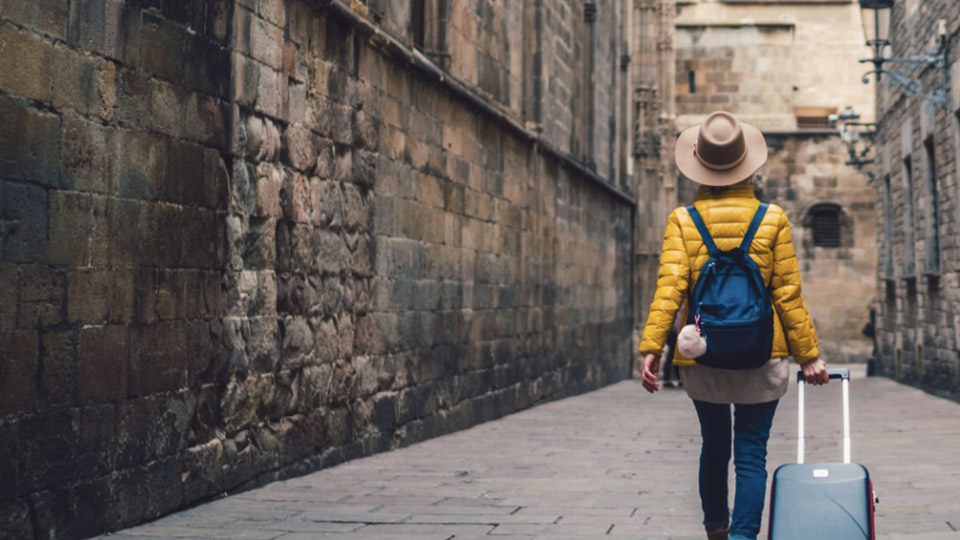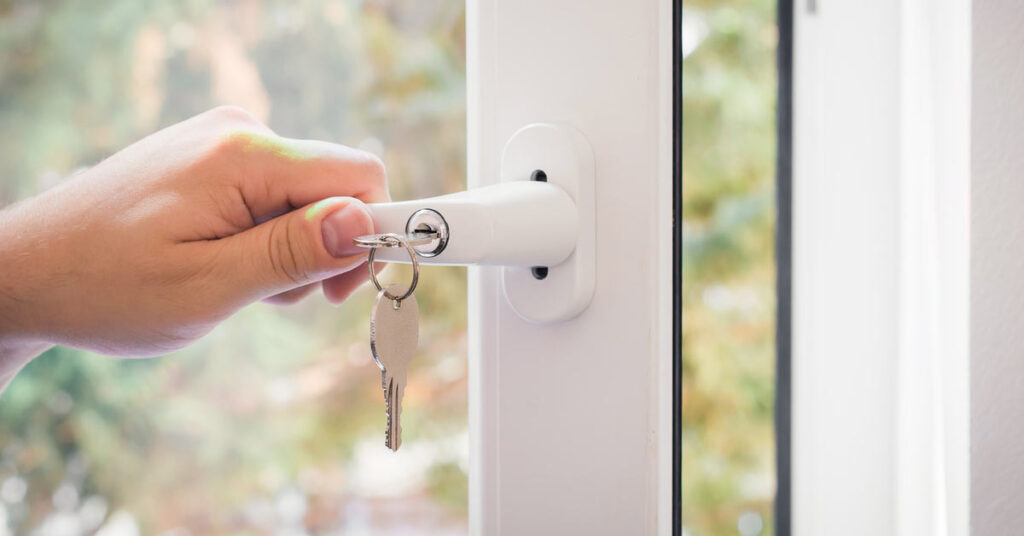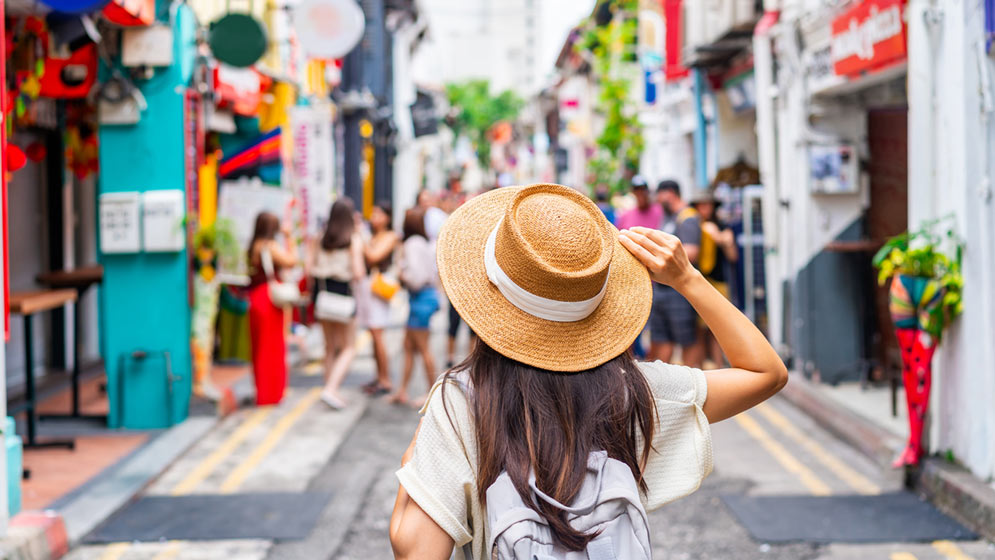Times are changing and so is travel. What you got away with 5 years ago might not fly in certain countries today. New travel restrictions and laws are being implemented and constantly changing, which may make it difficult for you to keep up with the certain bans or rules you need to follow. Well don’t worry, we got the scoop and we’ll update you with what you need to know right now before you travel. We want to help you better understand what precautions you may need to take in certain countries so that you can avoid facing some potentially serious consequences. So here comes the random, serious, and unique travel laws that exist in some commonly visited countries. Buckle up and grab a notepad, there are some rules you don’t want to forget.
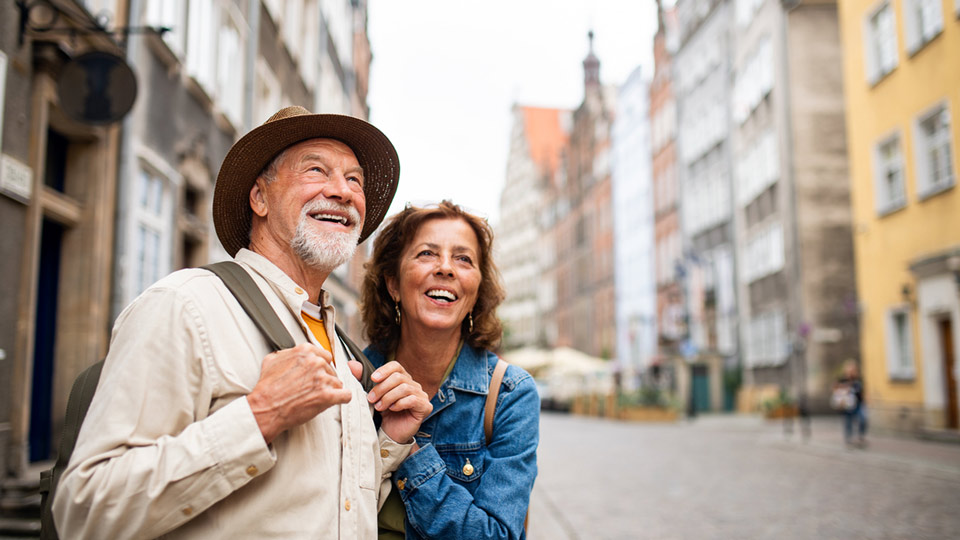
1. Turks and Caicos
A law implemented in Turks and Caicos according to the U.S. Embassy in the Bahamas states that “Firearms, ammunition (including stray bullets), and other weapons are not permitted in the Turks and Caicos Islands (TCI).”
As such, the TCI authorities have recently been strictly enforcing all firearms-and-ammunition-related laws as well as the penalties for traveling to TCI with any of these items, which could involve a minimum custodial sentence of up to 12 years!
Turks and Caicos has made frequent appearances in the news recently after several Americans have been arrested and detained for having found ammunition in their luggage. For instance, Ryan Tyler Watson, 40 years of age, is one of the men being prosecuted by the TCI government for having found rounds of ammunition that had supposedly been left and forgotten about in his bag after a recent hunting trip. Currently, Watson, is to remain on one of the Islands after being released from jail with a $15,000 bail and his next court hearing to be set in June.
At least three other families are facing similar circumstances after visiting the Turks and Caicos Islands for a simple vacation, but it looks like they have to extend their stay well beyond what they were expecting. Along with this ban on firearms and ammunition, Turks and Cacios has a few other notable laws to make you aware of if you are thinking of visiting this tropical bahamas destination:

- Traffic Laws: If you are planning to stay for a while and want to drive, note that your U.S. Driving Permit is only good for up to a month, after that a local Turks and Caicos license from the Department of Road Safety is required. In towns or on side roads, the speed limit is 20 mph and it only increases to 40 mph on the highway. As many other places, seatbelts are also mandatory.
- Public Transportation: There is NO public transportation in Turks and Caicos. Taxis are an option unless your rent a car or scooter but note there is a government tax on all car and motor scooter rentals (insurance is extra).
- Hunting and Fishing: All hunting is prohibited except for certain fishing limits set by local laws. They threaten severe penalties if you “disturb, harass, or otherwise threaten wildlife”. See the Turks and Caicos Government’s Department to Department of Fisheries and Marine Resources Management for more information.
2. Brazil
Whether or not you’re going to catch a soccer match, see Christ the Redeemer, or visit the Amazon rainforest, be sure you know of the recent travel restrictions for visiting Brazil. A recent release by the U.S. Embassy and Consulates in Brazil detailed that on “ April 10, 2025, the Government of Brazil (GOB) will reinstate a visa requirement for all U.S. nationals visiting Brazil, with an option for an e-visa for qualified applicants”. Brazil initially removed the visa requirement for U.S. nationals in 2019 under former President Jair Bolsonaro as part of an effort to boost tourism. This visa exemption allowed U.S. tourists to enter Brazil without a visa for stays up to 180 days per year. Since it is being reinstated, you will need a visa in order to visit Brazil after that date as a tourist. This is the most important recent adjustment to make you aware of if you are planning a vacation.
Beyond this, Brazil has laws revolving around public nudity. For instance, unlike Europe, it is illegal for women to be topless at their beaches. Moreover, tanning salons for cosmetic purposes are now banned, so if you’re looking for a tan, try the sun.
Here are some other niche laws to keep in mind when traveling to Brazil:
- In the city of Bello Horizonte, it is illegal to hang your laundry outdoors on Saturdays. This was put into effect to maintain the aesthetic appeal and cultural standards.
- You are not allowed ot use your mobile phones in banks. This is to protect you from being robbed before leaning, and those that don’t abide may pay fines.
- The Americans signal for “OK” is seen as an insult, much like giving someone the finger.
- Toy guns are illegal in Brazil. This include the selling and purchasing of toys that resemble firearms.

On a more serious note, make sure to avoid using or carrying illegal drugs as penalties for drug severe and can include long prison sentences. Same goes for drinking and driving, penalties are severe and can be implemented if you have a BAL over 0%. It is also required that you always carry your ID, passport, or some form of identification with you. Lastly, while Brazil does not have legal restrictions on same-sex marriage or LGBTI organizations, note that these relationships may not be accepted or are more dangerous to express in rural communities.
3. United Arab Emirates
The United Arab Emirates (UAE) is a federation of six emirates and includes Abu Dhabi, Dubai, Sharjah, Ajman, Umm Al-Quwain, Fujairah, and most recently Ras Al Khaimah. Note that the United Arab Emirates (UAE) operates as a federal absolute monarchy. The UAS is known for having some especially strict and unique laws that come with certain punishments and implications for breaking them. If you are looking to travel to one of these areas, be sure you adhere to their expectations to avoid any complications and a trouble-free trip.
First off, they have certain expectations around alcohol and its consumption. Alcohol is only allowed in licensed venues like hotels and clubs, and public intoxication is strictly prohibited. As such, drinking and driving, public drunkenness, or consuming alcohol without a license (for residents) can lead to fines, imprisonment, or even deportation. Even residents require a license to purchase and consume alcohol privately, so make sure you know where it is legalized.
Moreover, the UAE also has a zero drug tolerance and they are known to enforce severe penalties for the possession, use, or trafficking of illegal drugs. Penalties can range from imprisonment for several years to life imprisonment or even the death penalty in cases of trafficking. Note that this also applies to your prescription medicines! For instance, those that contain the painkiller codeine are considered illegal so check before you go.
Next is the dress code which is particularly modest. In general, your public attire should be conservative meaning your shoulders and knees should be covered. For women, they should not show their bare arms, low necklines, or wear short shorts. In this culture, inappropriate dressing can be considered offensive, and violations of the dress code can lead to warnings, fines, or more severe legal action, especially if the offense is considered “grossly inappropriate”.
If you are looking to go here on your honeymoon, maybe think again. Regarding public behavior, public displays of affection, such as kissing or hugging, are frowned upon and such behavior can lead to arrest, fines, or even jail time! Same goes for swearing and rudeness and rude gestures or having public arguments are considered offenses that can lead to fines, imprisonment, or deportation. Even swearing on WhatsApp can impose fines as well as checking someone else’s phone is considered an invasion of privacy and punishable.

It also may be wise to leave the selfie stick at home if you decide to travel to the UAE. The UAE has rules about what you can post on social media and photograph. For instance, unauthorized photography of certain government buildings, military installations, aviation accidents, and people can lead to legal trouble. Moreover, posting defamatory or critical content about the UAE, its rulers, or policies can be legally actionable and penalties could include fines, imprisonment, and sometimes even deportation. Flying drones is also prohibited as well as bringing in any type of weapons or military equipment.
Unlike the U.S., homosexuality is not generally accepted and homosexual acts are considered illegal. The law includes penalties such as imprisonment, fines, and deportation.
Lastly, if you are looking to gamble, go to Vegas. All forms of gambling are illegal in the UAE, including online gambling. Engaging in gambling activities can result in fines and imprisonment, so better not place the bet on not getting caught.
Note that also if you are leaving the UAE by land and are not a citizen of a Gulf Cooperation Council (GCC) country you must pay a departure fee of 35 UAE dirhams and is payable only in the local currency.
Understand that all of these laws established by the UAE are for their efforts to maintain public order, respecting cultural values, and adhering to Islamic practices. In general, make sure you are respectful of their culture and do not speak negatively or insult their beliefs. Visitors and residents alike are expected to adhere strictly to these regulations, and put bluntly, ignorance of the law is not typically accepted as an excuse for breaking them.
4. Singapore
If you have ever been to Singapore you may have noticed how clean it is. Well, there’s a reason for that. Singapore is renowned not only for its pristine urban environment but also for its strict laws that help maintain public order and cleanliness. Among these, the ban on chewing gum is particularly notable. Introduced in 1992 as part of broader anti-litter measures, the law prohibits the import, sale, and consumption of gum, with severe penalties for violations from large fines to even imprisonment for illegally importing it. Similarly, littering in Singapore carries hefty fines ranging from $730 to $7,000, so best practice while you are there…use the trash cans.
Moreover, Singapore imposes strict regulations across various other behaviors and actions to ensure safety and public decency. Drug offenses are met with severe punishments, including long imprisonment terms or even the death penalty for trafficking significant amounts. Vandalism, too, is heavily penalized with potential jail time, fines, or caning—a form of corporal punishment involving striking the offender’s buttocks with a rattan cane. Smoking is restricted to designated areas, and violating these regulations can lead to substantial fines. Additionally, public order is strictly managed; unauthorized public assemblies can lead to arrest, and actions such as spitting or failing to flush public toilets are punishable by fines. Moreover, the importation of prohibited items like firecrackers or pirated content can also result in fines and imprisonment, underscoring the strict regulatory environment that governs both locals and tourists alike.
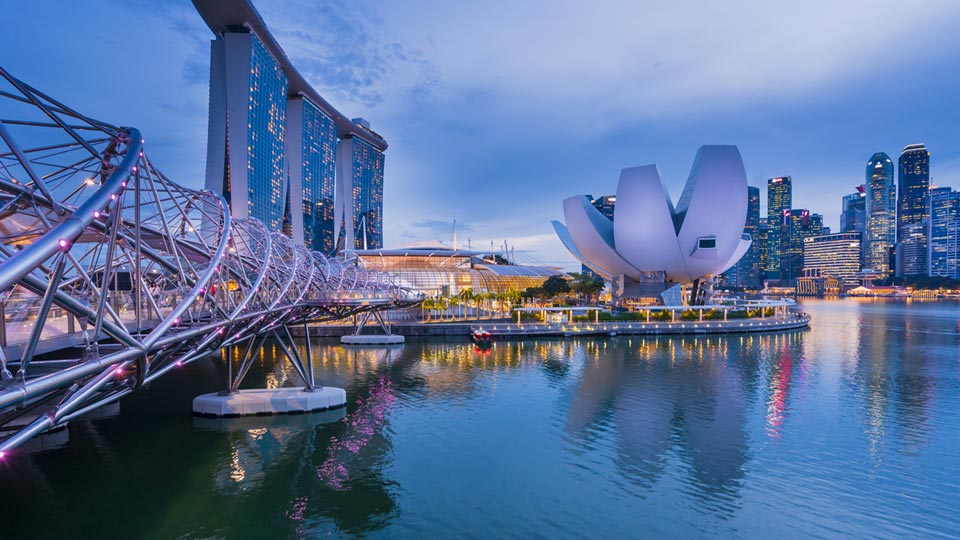
To learn more about the extensive laws and punishments within Singapore, read our full article.
5. Cuba
Cuba and the United States have had a complicated relationship to say the least. While it used to be extremely difficult to visit Cuba, efforts from 2014-2016 have since made getting in and out a bit easier. You cannot currently travel to Cuba for tourist related activities. To visit Cuba, you must have 1 of 13 approved reasons to travel there by the U.S. government:
- Family visits
- Official business of the U.S. government, foreign governments and certain intergovernmental organizations
- Journalistic activities
- Professional research or professional meetings
- Educational academic activities
- People-to-people exchanges (for travel related transactions purchased prior to June 5, 2019)
- Religious activities
- Public performance, clinics, workshops, athletic or other competitions and exhibitions
- Support for the Cuban people
- Humanitarian projects
- Activities of private foundations or research or educational institutes
- Exportation, importation, or transmission of information or informational materials
- Travel related to certain authorized export transactions
However, if you aren’t traveling for one of the 13 reasons, there are 2 other ways you could enter Cuba:
- With a license issued by the U.S. Office of Foreign Assets Control (OFAC)
- As a Cuban National returning home
Regarding other travel requirements note that anyone who is entering Cuba needs to have a visa and health insurance with coverage in the area. Also be sure to save 2 pages in your passport to be stamped.
Okay, now, let’s say you made it into Cuba, lets go over the laws within the country once you get there. In general, according to the U.S. Department of State, you could be penalized for disobeying any of the following laws:
- Possession, use, or trafficking of illegal drugs.
- Suspicion of assisting Cubans to leave the country illegally.
- Drivers involved in accidents that result in injury or death, regardless of fault.
- Importing weapons or ammunition.
- Photographing military or police installations or personnel, or harbor, rail, or airport facilities.
- Crimes against minors.

If you are looking to buy a souvenir, note that some U.S. credit and debit cards do not work in Cuba, so be sure to contact your bank before leaving. Moreover, access to the internet is heavily monitored and restricted. Certain websites, especially those considered to be against the Cuban government, are blocked. Lastly, engaging in political protests or demonstrations is illegal for tourists.
Note that Cuba is generally considered safe for American travelers, with relatively low rates of violent crime which is a positive, but it still has a Level 2 Travel Advisory that states to Exercise Increased Caution.
Our Top Travel Safety Tips
Traveling internationally? Great! But, are you adequately prepared? As discussed, certain may have strict laws and cultural norms that may be unfamiliar. So, along with doing research into where you are going, here are some general packing and safety tips to help you have a safe and memorable trip.
Packing Tips
- Research and Respect Local Customs: Before packing, research the local customs and dress codes of your destination. Some countries require modest dress, particularly for women, or have specific clothing rules for visiting religious sites. Pack clothing that follows these norms to avoid unwanted attention or legal issues.
- Essential Documents and Copies: Always carry your passport, visa, travel insurance information, and emergency contacts. It’s smart to have both digital and physical copies of these documents stored separately from the originals. Consider also registering your trip with the U.S. State Department through the Smart Traveler Enrollment Program (STEP) for updates on safety conditions.
- Medicine and Health Supplies: Pack a sufficient supply of any prescribed medications, and keep them in their original containers with clear labels. Check the legality of your medications in the destination country; some over-the-counter medicines in the U.S. are controlled substances elsewhere. Also, include a basic travel health kit with remedies for common ailments.
- Prohibited Items: Avoid packing items that could be problematic. This includes anything that might be considered a weapon (like certain types of knives or even pepper spray), materials that could be viewed as obscene or politically sensitive, and technology that is restricted in certain countries, such as satellite phones or GPS trackers.
Safety Tips and Reminders
- Obey Local Laws and Regulations: Once you arrive, adhere strictly to local laws, no matter how unusual they seem. This includes laws related to dress codes, alcohol consumption, drug use, photography, and public conduct. Ignorance of the law is rarely considered a valid defense.
- Avoid Political Activity: In many countries with strict laws, engaging in political discussions, protests, or other forms of political activity can lead to severe penalties. Avoid such activities and be cautious when discussing political topics, even in private conversations or on social media.
- Secure Your Belongings: Always keep your belongings secure and maintain awareness of your surroundings, especially in crowded places or tourist hotspots where pickpockets are common. Use hotel safes for valuables and carry only what you need for the day.
- Stay Informed: Keep up to date with the latest travel advisories from the U.S. State Department. Download apps or follow news outlets that can keep you informed of any local issues that may arise during your stay.
- Use Trusted Transportation: Use official and reputable transportation services. This is particularly important in countries where unlicensed taxis or informal transport services might pose safety risks or scams.
Scams To Be Aware Of
Pickpocketing
Beyond the laws and rules we have discussed, in all of the places we have mentioned, you are at risk of being robbed or duped by simple scams. For instance, let’s start with pickpocketing. Pickpockets thrive in crowded areas where close contact with others is normal and expected, such as markets, subways, buses, tourist sites, and festivals. They often work in teams; one distracts the target while another executes the theft. Distractions can be as simple as asking for directions, bumping into you, or creating a commotion. Once your attention is diverted, they swiftly and discreetly remove wallets, phones, or other valuables from pockets or bags.
This is common across all popular tourist destinations and should be something to be constantly aware of. However, certain scams are more prevalent in certain countries than others, so let’s take a look at what other scams you may need to look out for and where they are more commonly found among the countries we’ve discussed.
Accommodation Scams
These scams could arise as fake listings for homes or apartments that you are looking to stay at during your vacation. Scammers create advertisements for rentals that don’t exist. For instance, they may use photos from real listings to deceive tourists into making prepayments or deposits. This occurs more commonly in the tropical paradise of Turks and Caicos as well as Cuba and Singapore where there may be loads of listings. Avoiding this is simple by just using well-known and verified booking platforms like AirBnb or VRBO, and be sure to check reviews and ratings of whatever property you are looking at.
Transportation Scams
In a hurry to get from the airport to your hotel? Well be wearing of being too eager to accept a ride. A common scam prevalent in countries including Turks and Caicos, Brazil, and Singapore, is being overcharged by taxis. Often, the drivers charge tourists inflated rates, often by not using the meter or by taking longer routes. You should always agree on a fare before starting the car ride and instead try to use apps like Uber where possible which gives you a locked-in rate.
Moreover, particularly in Singapore, scammers might sell invalid or counterfeit tickets for buses, trains, or taxis. Always purchase your tickets from official counters or machines, and don’t try to save a dollar on convenience.
Electronic and Digital Scams
You need to be especially aware about scams that are designed to exploit visitors, which is especially prevalent in the UAE. This could include an overpayment scam which typically occurs with rental transactions where the scammer sends a check for more than the amount due and then requests a refund of the excess.
Moreover, you may stumble across fake E-commerce sites that offer high-value items at significantly reduced prices. For instance, if you find something and make a payment online, the item may never arrive and then the website may disappear. Similarly, you may receive a notification that you’ve won a prize or lottery that you don’t remember entering. Be wary as these scams often ask for a fee to release the supposed prize, which is a clear red flag.
So, if in the UAE, always be cautious with unsolicited offers, verify the legitimacy of any transaction, and use secure payment methods.
Local Helpers and Impersonation Scams
Try to be weary of strangers who are overly eager to help you out. For instance, Jineteros and Jineteras are common in Cuba. These hustlers seem friendly and offer to show tourists around or help with local transactions but steer them into scams like overpriced goods, services, or outright theft. It’s often best to decline offers from people who approach you unsolicited.
Moreover, in some tourist areas, individuals performing as dancers or other entertainers may ask if you want a photo with them, but will usually expect or demand payment after the photo is taken. Same can be said for individuals who offer to take your picture outside of popular tourist attractions, it’s probably best to just turn them down.
Lastly, specifically in Cuba, you may encounter fake police scams in which individuals may impersonate police officers or other officials to demand fines or bribes from tourists like yourself, such as for a parking ticket. Always ask for identification and, if in doubt, have them settle the fine at the nearest police station, never pay them upfront.
Spiked Drinks
In bars and clubs, you are at risk to have your drinks spiked with substances that can incapacitate you, leading to robbery or assault. This is something women and solo travelers should be more aware of, especially if visiting areas where there may be a party culture such as in Turks and Caicos and Brazil. Always watch your drink being made, never leave it unattended, and avoid accepting drinks from strangers.
Overall, to protect yourself, always stay aware of your surroundings and keep your belongings secure, especially in crowded places. For pickpocketing, you can use anti-theft bags or bags with secure closures and try to keep valuables in inner pockets or money belts, rather than in those more easily accessible outer compartments. Regarding other scams, if you are approached by strangers in a manner that feels overly familiar or intrusive, it’s okay to step back and reassess the situation. Be polite but firm in declining unsolicited help and have an understanding of local currency and merchant expectations to avoid being overcharged. With all of this in mind, you should be able to travel with confidence.
Currency and Payment Scams
Something else to look out for is counterfeit currency, and being given fake money in exchange for legitimate money, especially when using street money changers. This is common in Cuba and Singapore or places with less stringent security for tourists. Also, your credit card information can be skimmed or copied, and unauthorized charges made. So, instead, try to use official currency exchange locations and familiarize yourself with the local currency to recognize fakes.
Moreover, you may encounter rental scams at beaches for instance where scammers may rent out chairs or umbrellas and later claim additional charges for “unmentioned services”. Always clarify what is included in the rental fee. Moreover, vendors may sell items like food, drinks, or souvenirs at significantly higher prices to tourists. Familiarize yourself with typical local prices to avoid overpaying, especially when in Cuba and Brazil.
Final Thought
When you travel, the best tip we have is to be prepared. Do your research, pack wisely, and understand local customs. Talk to friends or families who may have visited to familiarize yourself with their experience, and you can always reach out to authorities or travel companies for more information. With all of that in mind, you can have a hassle free trip and come back with fun memories!
Disclaimer
Content on this site is for reference and information purposes only. Do not rely solely on this content, as it is not a substitute for advice from a financial advisor or accounting professional. StaySafe.com assumes no liability for inaccuracies.


